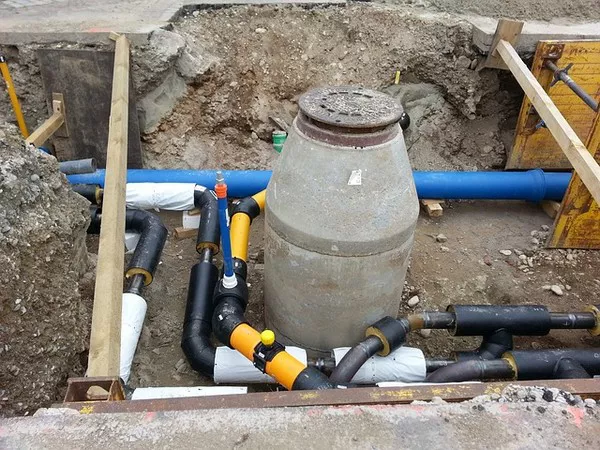In the face of increasing urbanization and environmental challenges, wastewater treatment has emerged as a critical aspect of sustainable development. Efficient wastewater treatment systems are crucial for protecting water resources, public health, and ecosystems. Various countries have made significant strides in wastewater management, but which country stands out as having the best wastewater treatment system? This article delves into the leading nations in wastewater treatment, evaluating their systems’ effectiveness, technology, and overall impact.
The Importance of Effective Wastewater Treatment
Before diving into the specifics of individual countries, it’s essential to understand the importance of effective wastewater treatment. Proper treatment of wastewater prevents the release of pollutants into natural water bodies, which can lead to the degradation of water quality, harmful algal blooms, and adverse effects on aquatic life. Additionally, well-managed systems can help recycle water, reducing the need for freshwater resources and promoting sustainability.
Key Metrics for Evaluating Wastewater Treatment Systems
To determine which country has the best wastewater treatment system, several metrics must be considered:
Treatment Technology: The sophistication and efficiency of the technology used in treating wastewater.
Infrastructure: The extent and modernity of the wastewater infrastructure, including treatment plants and sewer systems.
Compliance and Regulations: The strictness of environmental regulations and the country’s adherence to international standards.
Sustainability and Innovation: The incorporation of sustainable practices and innovative solutions in wastewater management.
Public Health Impact: The effectiveness of the system in preventing public health issues related to wastewater.
Leading Nations in Wastewater Treatment
Several countries are recognized for their advanced wastewater treatment systems. Here, we highlight some of the leading examples:
Germany
Germany is renowned for its highly efficient and technologically advanced wastewater treatment systems. The country’s approach emphasizes a combination of robust infrastructure and innovative technology. Germany’s wastewater treatment plants are equipped with state-of-the-art technologies, such as membrane bioreactors and advanced oxidation processes. The German government enforces stringent regulations to ensure high standards of wastewater treatment, contributing to low levels of pollutants in treated water. Furthermore, Germany has invested heavily in research and development to enhance wastewater treatment processes, promoting sustainability and resource recovery.
Sweden
Sweden’s wastewater treatment system is a model of sustainability and innovation. The country has adopted a holistic approach, integrating wastewater treatment with resource recovery and energy production. Swedish wastewater treatment plants often utilize advanced processes like anaerobic digestion to generate biogas, which can be used for energy. Additionally, Sweden emphasizes the importance of maintaining and upgrading its infrastructure, ensuring that treatment systems are both effective and resilient. The country’s commitment to environmental protection and its proactive stance on climate change contribute to its leading position in wastewater management.
Japan
Japan is known for its high-tech wastewater treatment systems and meticulous attention to detail. The country employs advanced technologies, such as nitrogen and phosphorus removal processes, to ensure that treated wastewater meets rigorous environmental standards. Japan’s focus on minimizing environmental impact is evident in its comprehensive approach to wastewater management, including the reuse and recycling of treated water. Additionally, Japan’s disaster resilience and infrastructure reliability are notable, ensuring that wastewater treatment systems continue to function effectively even in the face of natural disasters.
Singapore
Singapore is a standout example of how a country can overcome challenges related to limited natural resources through innovation in wastewater treatment. The nation has developed a highly sophisticated system known as the “Four National Taps” strategy, which includes the use of reclaimed water from treated wastewater, desalination, and imported water. Singapore’s NEWater program, which treats and recycles wastewater to produce high-quality reclaimed water, exemplifies its commitment to sustainability and resource efficiency. The country’s investment in cutting-edge technology and its emphasis on research and development have positioned it as a leader in wastewater treatment.
Netherlands
The Netherlands is another country with a highly effective wastewater treatment system. The Dutch approach combines advanced technology with strong regulatory frameworks and public awareness. The country’s wastewater treatment plants utilize innovative technologies, such as advanced filtration and biological treatment processes, to achieve high levels of water quality. The Netherlands also places a strong emphasis on water management and flood protection, integrating wastewater treatment with broader water resource management strategies.
Comparative Analysis
When comparing these leading nations, several common themes emerge. All of these countries invest heavily in technology and infrastructure, maintain rigorous environmental regulations, and prioritize sustainability. However, there are also notable differences:
Technology and Innovation: Countries like Germany, Sweden, and Singapore stand out for their emphasis on integrating advanced technologies and innovative practices into their wastewater treatment systems.
Resource Recovery: Sweden and Singapore are particularly noteworthy for their focus on resource recovery, including energy production from wastewater and reclaimed water initiatives.
Regulatory Frameworks: Germany and the Netherlands are distinguished by their stringent regulatory frameworks, which ensure high standards of wastewater treatment and environmental protection.
Disaster Resilience: Japan’s wastewater treatment systems are renowned for their resilience and reliability, even in the face of natural disasters.
See Also BOD and COD in Water: Key Indicators of Water Quality
Conclusion
Determining which country has the best wastewater treatment system involves evaluating various factors, including technology, infrastructure, regulations, sustainability, and public health impact. While Germany, Sweden, Japan, Singapore, and the Netherlands all excel in different aspects of wastewater management, each country offers valuable insights and best practices.
Ultimately, the best wastewater treatment system is one that effectively balances technological sophistication with environmental and public health considerations. As global challenges related to water resources and environmental protection continue to evolve, the lessons learned from these leading nations will be instrumental in shaping the future of wastewater management worldwide.

